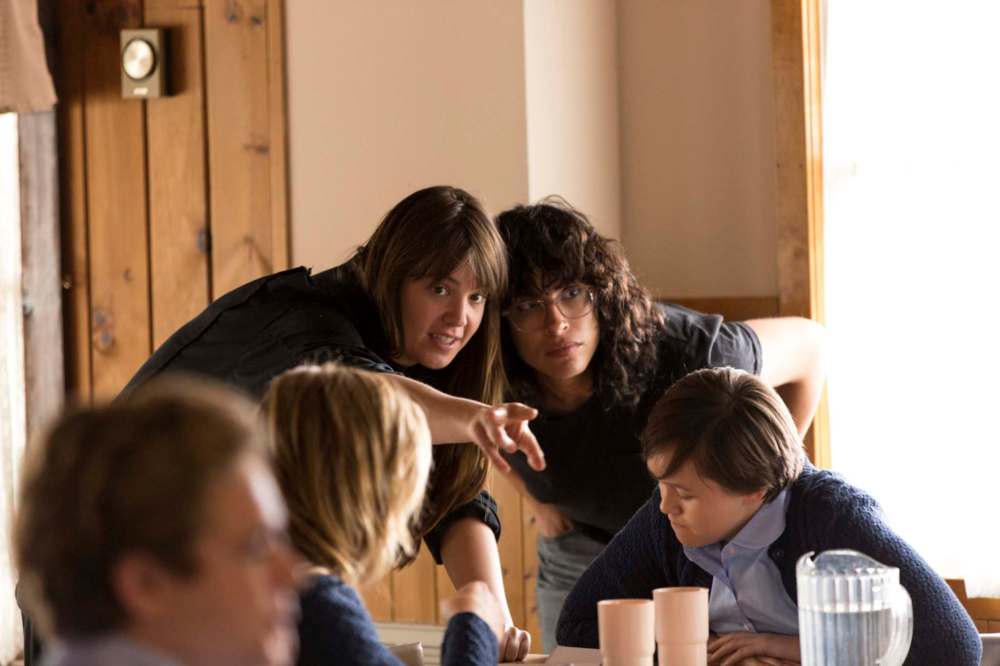Director Desiree Akhavan creates a high stakes teen drama
The Miseducation of Cameron Post turns heartbreak into art
Advertisement
Read this article for free:
or
Already have an account? Log in here »
To continue reading, please subscribe:
Monthly Digital Subscription
$19 $0 for the first 4 weeks*
- Enjoy unlimited reading on winnipegfreepress.com
- Read the E-Edition, our digital replica newspaper
- Access News Break, our award-winning app
- Play interactive puzzles
*No charge for 4 weeks then billed as $19 every four weeks (new subscribers and qualified returning subscribers only). Cancel anytime.
Read unlimited articles for free today:
or
Already have an account? Log in here »
Hey there, time traveller!
This article was published 08/08/2018 (2288 days ago), so information in it may no longer be current.
To see The Miseducation of Cameron Post is to know Iranian-American filmmaker Desiree Akhavan does not have much use for the notion of nostalgia.
The film stars Chloë Grace Moretz as a teen girl sent to a Christian gay conversion therapy camp in the year 1993. Do not expect a soundtrack studded with hits of the era, no matter how on the nose, such as UB40’s I Can’t Help Falling In Love with You.
Akhavan, who describes herself as bisexual, was only 10 years old in 1993, so she admits she didn’t have a connection to the specific era, “or and idea what life would look like for a gay person,” she says in a phone interview from Los Angeles.

“But at the same time, I come from a conservative Iranian family and when I came out, no one in my family had even heard of a gay Iranian,” she says. “It was like coming out as a leprechaun. It felt fictitious, absurd to everybody and they couldn’t wrap their brains around it.
“Still, it’s a very different thing to come out nowadays than it was in the ’90s,” she says. “Then there was no idea of what a life as a homosexual could look like living successfully and in the public.”
Her distaste for nostalgia notwithstanding, she did look to a filmmaker from the past as an inspiration for the tone of the film. Think: The Breakfast Club and Ferris Bueller’s Day Off.
“To me, this was the perfect teen coming-of-age story and I wanted to make a film in the vein of John Hughes, in the way it spoke to teens, in the way his films also spoke to me,” she says, “but I wanted to take it from my perspective.”
“I felt for the past few decades, teen films have really been speaking down and watering down the experience of being a teenager,” she says.
The basis for the film is a young adult novel by Emily M. Danforth and it further inspired her, she says.
“When I read this book, it felt sharp, it felt urgent, it felt sexy and funny and heartbreaking all at the same time,” she says. “Those are all the ingredients of teenage life to me.
“I wanted an honest depiction of female sexuality and female coming of age, where the stakes are as high as can be. And that’s why a conversion therapy centre is the perfect setting for this,” she says. “The trauma of that place felt like the trauma of my own upbringing, but it was far more dramatic and convenient for a narrative.”
She never intended the film to rip the lid off conversion centres in the style of an old-fashioned exposé.
“Shedding light on conversion therapy was important but it was not the motivating factor,” she says. “The book spoke to me on a lot of levels and I thought it was more of a metaphor.”
That said, since the film was being shot during the 2016 U.S. presidential election, “and it became clear our administration was on a neo-Nazi level of craziness,” she says, pointing out Vice President Mike Pence in particular for his anti-gay ideology.
“If you chase where his money comes from, it comes from organizations that advocate for gay conversion therapy,” she says.
That atmosphere created a newfound urgency to tell the story, though it didn’t alter the shooting script, she says.
“But it lit a fire under our asses,” she says. “We were all incredibly heartbroken and we funnelled that heartbreak into the shoot.”
randall.king@freepress.mb.ca
Twitter: @FreepKing

Randall King
Reporter
In a way, Randall King was born into the entertainment beat.
Our newsroom depends on a growing audience of readers to power our journalism. If you are not a paid reader, please consider becoming a subscriber.
Our newsroom depends on its audience of readers to power our journalism. Thank you for your support.



